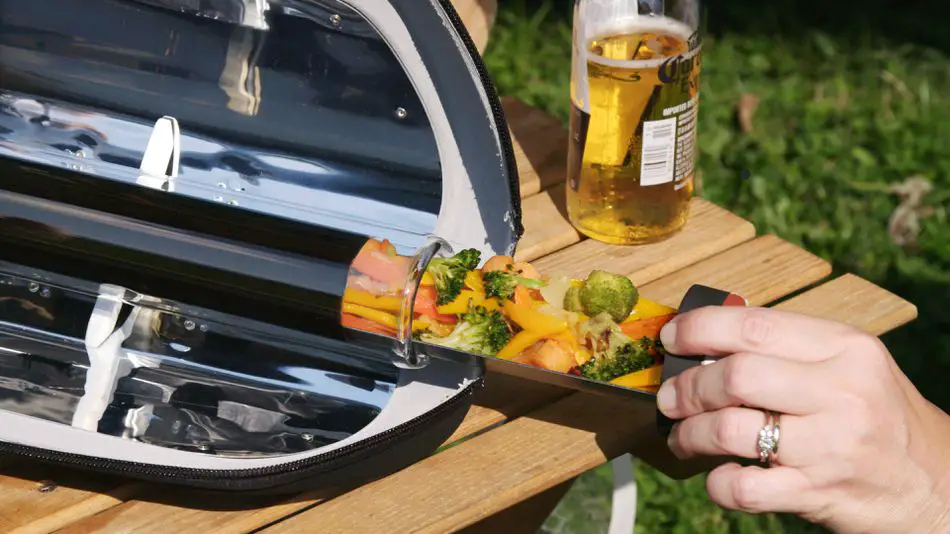
Ever since human beings discovered how to make fire, many individuals have developed the eagerness to use it. Over time, cooking methods have become more efficient, sophisticated, compact, and portable at the same time. Today, induction ranks among the most benefit-rich technique.

The induction cook-top is a breakthrough technology. Despite being sophisticated, most homes and restaurants still use it. As opposed to electric and gas stoves, the cook-tops work by generating an electromagnetic field to heat the pots. The process basically converts the cookware to a heating element.
After heating, energy is created to heat the cookware placed above the induction cook-top. During the induction cooking technique, the stoves remain cool-to-touch. The magnetic field generated between the cookware and stove means your food will cook quickly.
Here are top concerned regarding solar power and induction cook-tops;
Solar Induction Cook-Tops
Induction cook-tops work by combining the features of both electric cook-tops and gas cook-tops. They are easier to clean compared to electric models and still offer a consistent heat like the gas models. However, there are still induction cook-tops that use solar power. So, the question arises, can we rely on solar power for induction cook-tops at home?
Solar induction cookers work in the same way as other cookers. In these models, a coil is put beneath the cooking surface. The solar panel provides a high-frequency alternating current that passes through this coil. The current creates a magnetic field that’s strong enough to cook food.
High Power Supply
Even though some homes use solar power, it’s not recommended in areas with low power supply. With most cookers rated between 1500W and 2200W, it will consume a lot of energy, thus rendering the whole set-up inefficient.
To clearly highlight why you can’t rely on solar power if you use induction cook-tops at home, let’s take a classic example of a 2000W cooker. To power such a unit using solar power, you’ll require a 3000W sine inverter.
The inverter consumes 95 amps from the batteries if it operates on 24V. Even though you can use cheaper inverters, it’s not worth the risk because it might destroy your cook-top.
If the cooker operates for 1.5 hours every day, it translates to around 145 amp-hours or 3480W hours. Using the unit, you’ll require approximately 4524W hours of solar harvest. During winters, it will be nearly impossible to generate such an amount of energy to power your cooker.
Batteries
Another issue with solar power is the batteries. Batteries should not discharge more than 10 percent of the rate on their label. Using the above model, you’ll be looking at 45 amps at 48V battery. As such, to generate 48V, you’ll require a 500 ah battery. This battery will work extremely hard and might be consumed in less than two years.
Cost of Installation
Considering the cost of installing solar panels and the amount of energy required, it’s clearly evident why it can’t work on induction cook-tops. Besides installation, the initial cost also includes paying for wire harness, batteries, circuit breakers, and wiring. Also, you might have to incur the cost of battery storage which adds to the operational costs.
Reliability
Another issue with using solar power for induction cook-tops is reliability since the energy is weather dependent. Solar energy depends on the sun, which means it can’t generate electricity at night. On cloudy and rainy days, the efficiency of solar drops, even if you have an Anker Powerhouse generator. You will, therefore, require alternative cooking solutions during winter times and at night.
Storage Space
Also, space becomes a problem when you use solar power. The more electricity you want for induction cook-tops, the more solar panels you’ll require. Some solar PV panels need more space, and most roofs won’t accommodate many panels. As such, you’ll be forced to put them in yards where they access sunlight. This issue becomes a significant problem if your cooking needs are high, yet you have a small yard.
Conclusion
The use of induction cook-tops is increasing today. If you want a unit with instant response to temperature changes and heats super fast, while still remaining cool-to-touch, then these units will work for you. The sleek designs and superior performance makes these models a must-have in most homes.
A solar induction cook-top is an ideal tool if you want high-tech and innovative cookware today. However, despite being an inexhaustible source of energy, harnessing solar energy for cooking purposes has many drawbacks from being inefficient and expensive to consuming space. One thing is certain, though. You can’t rely on solar power if you use induction cook-tops at home. Solar-powered models have a long way to go before they become affordable, efficient, and reliable.
